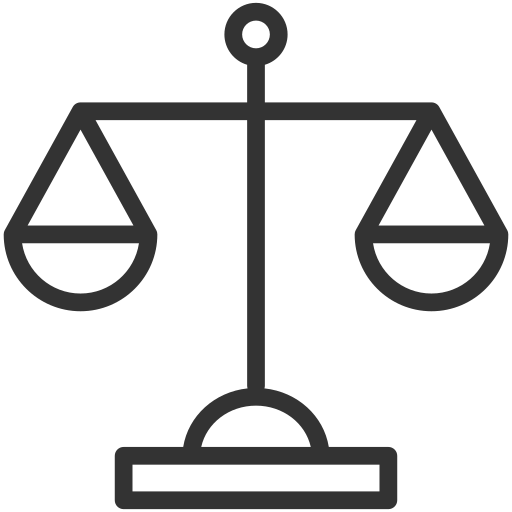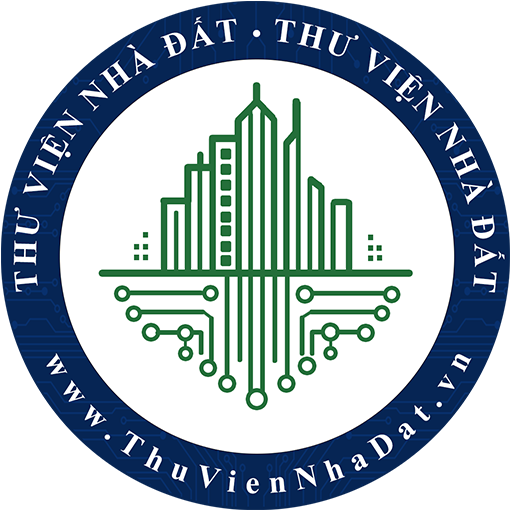|
BỘ
CÔNG AN - VIỆN KIỂM SÁT NHÂN DÂN TỐI CAO - TÒA ÁN NHÂN DÂN TỐI CAO |
CỘNG
HÒA XÃ HỘI CHỦ NGHĨA VIỆT NAM |
|
Số: 04/2025/TTLT-BCA-VKSNDTC-TANDTC |
Hà Nội, ngày 27 tháng 6 năm 2025 |
Căn cứ Nghị quyết số 190/2025/QH15 ngày 19 tháng 02 năm 2025 của Quốc hội quy định về xử lý một số vấn đề liên quan đến sắp xếp tổ chức bộ máy nhà nước;
Căn cứ Bộ luật Tố tụng hình sự năm 2015 (sửa đổi, bổ sung năm 2021, năm 2025);
Bộ trưởng Bộ Công an, Viện trưởng Viện kiểm sát nhân dân tối cao và Chánh án Tòa án nhân dân tối cao ban hành Thông tư liên tịch quy định về phối hợp giữa các cơ quan có thẩm quyền trong hoạt động tố tụng hình sự, quản lý, thi hành tạm giữ, tạm giam và thi hành án hình sự.
Điều 1. Phạm vi điều chỉnh, đối tượng áp dụng
1. Phạm vi điều chỉnh:
Thông tư liên tịch này quy định về phối hợp giữa các cơ quan có thẩm quyền trong việc tiếp nhận, giải quyết nguồn tin về tội phạm, khởi tố, điều tra, truy tố, xét xử; quản lý, thi hành tạm giữ, tạm giam và thi hành án hình sự.
2. Đối tượng áp dụng:
a) Công an xã, phường, đặc khu (sau đây gọi là Công an cấp xã), Đồn Công an; Cơ quan Cảnh sát điều tra, cơ quan quản lý, thi hành tạm giữ, tạm giam và cơ quan quản lý, thi hành án hình sự của Công an nhân dân;
b) Viện kiểm sát nhân dân;
c) Tòa án nhân dân;
d) Người có thẩm quyền của các cơ quan quy định tại các điểm a, b và c khoản này;
đ) Cơ quan, tổ chức, cá nhân khác có liên quan.
1. Việc tiếp nhận, giải quyết nguồn tin về tội phạm, khởi tố, điều tra của Cơ quan Cảnh sát điều tra của Công an nhân dân; việc thực hành quyền công tố, kiểm sát việc tiếp nhận, giải quyết nguồn tin về tội phạm, khởi tố, điều tra, truy tố, xét xử đối với những vụ việc, vụ án được thực hiện theo quy định của Thông tư liên tịch này và quy định của các văn bản quy phạm pháp luật đã ban hành trước ngày Thông tư liên tịch này có hiệu lực mà không trái với quy định của Thông tư liên tịch này.
2. Việc quản lý, thi hành tạm giữ, tạm giam, thi hành án hình sự và việc kiểm sát thi hành tạm giữ, tạm giam, kiểm sát thi hành án hình sự được thực hiện theo quy định tại Thông tư liên tịch này và quy định của các văn bản quy phạm pháp luật đã ban hành trước ngày Thông tư liên tịch này có hiệu lực mà không trái với quy định của Thông tư liên tịch này.
Cơ quan ban hành các lệnh, quyết định, thông báo, bản án và các văn bản khác trong tố tụng hình sự, thi hành tạm giữ, tạm giam, thi hành án hình sự phải gửi đến cơ quan có thẩm quyền và có trách nhiệm thi hành theo thẩm quyền được quy định trong Thông tư liên tịch này và quy định của các văn bản quy phạm pháp luật đã ban hành trước ngày Thông tư liên tịch này có hiệu lực mà không trái với quy định của Thông tư liên tịch này.
Điều 4. Tổ chức Cơ quan Cảnh sát điều tra của Công an nhân dân
Cơ quan Cảnh sát điều tra của Công an nhân dân gồm:
1. Cơ quan Cảnh sát điều tra Bộ Công an.
2. Cơ quan Cảnh sát điều tra Công an tỉnh, thành phố (sau đây gọi là cấp tỉnh).
1. Thẩm quyền tiếp nhận, giải quyết nguồn tin về tội phạm, khởi tố, điều tra vụ án hình sự của Cơ quan Cảnh sát điều tra Bộ Công an thực hiện theo quy định của pháp luật.
2. Cơ quan Cảnh sát điều tra Công an cấp tỉnh có thẩm quyền tiếp nhận, giải quyết nguồn tin về tội phạm, khởi tố, điều tra vụ án hình sự về các tội phạm quy định tại các chương từ Chương XIV đến Chương XXIV của Bộ luật Hình sự khi các tội phạm đó thuộc thẩm quyền xét xử của Tòa án nhân dân khu vực, Tòa án nhân dân cấp tỉnh, trừ các tội phạm thuộc thẩm quyền điều tra của Cơ quan điều tra Viện kiểm sát nhân dân tối cao và Cơ quan An ninh điều tra của Công an nhân dân.
3. Cơ quan Cảnh sát điều tra Công an cấp tỉnh chủ trì, phối hợp với Viện kiểm sát nhân dân khu vực hướng dẫn, kiểm tra việc thực hiện hoạt động kiểm tra, xác minh sơ bộ tố giác, tin báo về tội phạm của Công an cấp xã, Đồn Công an; hướng dẫn việc thực hiện thẩm quyền của Điều tra viên trung cấp, Điều tra viên cao cấp là Trưởng hoặc Phó Trưởng Công an cấp xã.
1. Thủ trưởng Cơ quan Cảnh sát điều tra Công an cấp tỉnh chỉ có thể ủy quyền, phân công cho Điều tra viên trung cấp, Điều tra viên cao cấp là Trưởng Công an cấp xã; trường hợp khi Điều tra viên trung cấp, Điều tra viên cao cấp là Trưởng Công an cấp xã vắng mặt hoặc đối với Công an cấp xã chưa có Điều tra viên trung cấp, Điều tra viên cao cấp là Trưởng Công an cấp xã thì có thể ủy quyền, phân công cho Điều tra viên trung cấp, Điều tra viên cao cấp là Phó Trưởng Công an cấp xã (sau đây gọi là Điều tra viên là Trưởng Công an cấp xã) thụ lý, giải quyết đối với nguồn tin về tội phạm, khởi tố, điều tra vụ án hình sự về tội phạm ít nghiêm trọng, nghiêm trọng xảy ra trên địa bàn cấp xã.
2. Thủ trưởng Cơ quan Cảnh sát điều tra Công an cấp tỉnh có thể ủy quyền cho Điều tra viên là Trưởng Công an cấp xã được thực hiện toàn bộ hoặc một trong các hoạt động sau đây đối với nguồn tin về tội phạm ít nghiêm trọng, nghiêm trọng xảy ra trên địa bàn cấp xã:
a) Trưng cầu giám định chất ma túy đối với các vụ liên quan đến các hành vi phạm tội về ma túy; trưng cầu giám định, yêu cầu định giá tài sản trong các vụ tai nạn giao thông, cố ý gây thương tích, trộm cắp tài sản, hủy hoại hoặc cố ý làm hư hỏng tài sản;
b) Giữ người trong trường hợp khẩn cấp;
c) Bắt người bị giữ trong trường hợp khẩn cấp;
d) Tạm giữ người;
đ) Khám nghiệm hiện trường;
e) Khám xét, khám xét trong trường hợp khẩn cấp.
3. Văn bản ủy quyền quy định tại khoản 2 Điều này phải được gửi ngay đến Viện kiểm sát nhân dân có thẩm quyền.
4. Thủ trưởng Cơ quan Cảnh sát điều tra Công an cấp tỉnh hoặc Phó Thủ trưởng Cơ quan Cảnh sát điều tra Công an cấp tỉnh được Thủ trưởng Cơ quan Cảnh sát điều tra Công an cấp tỉnh ủy quyền (sau đây gọi là Thủ trưởng Cơ quan Cảnh sát điều tra hoặc Phó Thủ trưởng được ủy quyền) có thể phân công Điều tra viên là Trưởng Công an cấp xã thụ lý, giải quyết nguồn tin về tội phạm, khởi tố, điều tra vụ án hình sự về tội phạm ít nghiêm trọng, nghiêm trọng xảy ra trên địa bàn cấp xã.
5. Căn cứ tình hình thực tế, Thủ trưởng Cơ quan Cảnh sát điều tra Công an cấp tỉnh quyết định việc ủy quyền quy định tại khoản 2 Điều này; Thủ trưởng Cơ quan Cảnh sát điều tra (hoặc Phó Thủ trưởng được ủy quyền) quyết định việc phân công quy định tại khoản 4 Điều này.
6. Đối với nguồn tin về tội phạm, vụ án hình sự về tội phạm ít nghiêm trọng, nghiêm trọng xảy ra trên địa bàn nhiều xã, phường, đặc khu thì Thủ trưởng Cơ quan Cảnh sát điều tra (hoặc Phó Thủ trưởng được ủy quyền) có thể phân công Điều tra viên là Trưởng Công an cấp xã của một trong các xã, phường, đặc khu xảy ra tội phạm giải quyết nguồn tin về tội phạm, khởi tố, điều tra vụ án hình sự. Trong trường hợp này, Điều tra viên là Trưởng Công an cấp xã thực hiện nhiệm vụ, quyền hạn tại khoản 1a Điều 37 Bộ luật Tố tụng hình sự.
7. Khi thực hiện thẩm quyền quy định tại Điều này, Điều tra viên là Trưởng Công an cấp xã sử dụng con dấu của Cơ quan Cảnh sát điều tra Công an cấp tỉnh và ký “thừa ủy quyền” Thủ trưởng Cơ quan Cảnh sát điều tra Công an cấp tỉnh.
1. Thẩm quyền thực hành quyền công tố, kiểm sát việc tiếp nhận, giải quyết nguồn tin về tội phạm, khởi tố, điều tra vụ án hình sự; giải quyết và kiểm sát việc giải quyết khiếu nại, tố cáo trong tiếp nhận, giải quyết nguồn tin về tội phạm, khởi tố, điều tra vụ án hình sự của Viện kiểm sát nhân dân đối với Cơ quan Cảnh sát điều tra Bộ Công an thực hiện theo quy định của pháp luật.
2. Thẩm quyền thực hành quyền công tố, kiểm sát việc tiếp nhận, giải quyết nguồn tin về tội phạm, khởi tố, điều tra vụ án hình sự; giải quyết và kiểm sát việc giải quyết khiếu nại, tố cáo trong tiếp nhận, giải quyết nguồn tin về tội phạm, khởi tố, điều tra vụ án hình sự của Viện kiểm sát nhân dân đối với Cơ quan Cảnh sát điều tra Công an cấp tỉnh thực hiện như sau:
a) Viện kiểm sát nhân dân khu vực có thẩm quyền thực hành quyền công tố, kiểm sát việc tiếp nhận, giải quyết nguồn tin về tội phạm, khởi tố, điều tra, truy tố đối với vụ việc, vụ án hình sự về các tội phạm ít nghiêm trọng, tội phạm nghiêm trọng, tội phạm rất nghiêm trọng do Cơ quan Cảnh sát điều tra Công an cấp tỉnh thụ lý, giải quyết và thuộc thẩm quyền xét xử sơ thẩm của Tòa án nhân dân khu vực.
Trong quá trình thực hành quyền công tố, kiểm sát việc giải quyết vụ việc, vụ án mà phát hiện vụ việc, vụ án thuộc thẩm quyền của Viện kiểm sát nhân dân khu vực khác trong cùng một tỉnh, thành phố thì Viện kiểm sát nhân dân khu vực đang thụ lý ra quyết định chuyển vụ việc, vụ án. Trường hợp vụ việc, vụ án thuộc thẩm quyền của Viện kiểm sát nhân dân cấp tỉnh thì Viện kiểm sát nhân dân khu vực đang thụ lý báo cáo Viện kiểm sát nhân dân cấp tỉnh và ra quyết định chuyển vụ việc, vụ án cho Viện kiểm sát nhân dân cấp tỉnh giải quyết. Trường hợp vụ việc, vụ án thuộc thẩm quyền của Viện kiểm sát nhân dân khu vực khác ngoài tỉnh, thành phố hoặc thuộc thẩm quyền của Viện kiểm sát nhân dân cấp tỉnh khác thì Viện kiểm sát nhân dân khu vực đang thụ lý báo cáo Viện kiểm sát nhân dân cấp tỉnh để ra quyết định chuyển vụ việc, vụ án theo quy định tại khoản 2 Điều 169 Bộ luật Tố tụng hình sự.
Viện kiểm sát nhân dân khu vực có thẩm quyền thực hành quyền công tố, kiểm sát việc tiếp nhận, phân loại, xử lý nguồn tin về tội phạm của Công an cấp xã, Đồn Công an; việc thực hiện nhiệm vụ, quyền hạn của Điều tra viên là Trưởng Công an cấp xã theo Điều 37 Bộ luật Tố tụng hình sự và hoạt động thực hiện nhiệm vụ, quyền hạn của Điều tra viên, Cán bộ điều tra thuộc Cơ quan Cảnh sát điều tra Công an cấp tỉnh bố trí tại Công an cấp xã.
Viện kiểm sát nhân dân khu vực có thẩm quyền là Viện kiểm sát nơi tội phạm xảy ra, trường hợp tội phạm xảy ra ở nhiều nơi khác nhau hoặc không xác định được địa điểm xảy ra tội phạm thì Viện kiểm sát nhân dân khu vực có thẩm quyền là Viện kiểm sát nơi phát hiện tội phạm, nơi bị can cư trú hoặc bị bắt;
b) Viện kiểm sát nhân dân cấp tỉnh có thẩm quyền thực hành quyền công tố, kiểm sát việc tiếp nhận, giải quyết nguồn tin về tội phạm, khởi tố, điều tra, truy tố đối với vụ việc, vụ án về tội phạm đặc biệt nghiêm trọng do Cơ quan Cảnh sát điều tra Công an cấp tỉnh thụ lý, giải quyết.
Trường hợp vụ án do Viện kiểm sát nhân dân cấp tỉnh thực hành quyền công tố, kiểm sát việc khởi tố, điều tra nhưng thuộc thẩm quyền xét xử sơ thẩm của Toà án nhân dân khu vực thì chậm nhất 02 tháng trước khi kết thúc điều tra, Viện kiểm sát nhân dân cấp tỉnh thông báo cho Viện kiểm sát cùng cấp với Tòa án nhân dân khu vực có thẩm quyền xét xử sơ thẩm để cử Kiểm sát viên tham gia. Ngay sau khi ra quyết định truy tố, Viện kiểm sát nhân dân cấp tỉnh quyết định phân công cho Viện kiểm sát cùng cấp với Tòa án nhân dân khu vực có thẩm quyền xét xử sơ thẩm thực hành quyền công tố và kiểm sát xét xử. Sau khi nhận được hồ sơ vụ án kèm theo bản cáo trạng do Viện kiểm sát nhân dân cấp tỉnh chuyển đến, Viện kiểm sát nhân dân khu vực được phân công thực hành quyền công tố và kiểm sát xét xử theo quy định;
c) Viện kiểm sát nhân dân đang thực hành quyền công tố và kiểm sát việc tiếp nhận, giải quyết nguồn tin về tội phạm có quyền trực tiếp giải quyết nguồn tin về tội phạm trong các trường hợp quy định tại điểm c khoản 3 Điều 145 Bộ luật Tố tụng hình sự;
d) Viện kiểm sát nhân dân đang thực hành quyền công tố và kiểm sát việc khởi tố, điều tra, truy tố đối với vụ việc, vụ án có quyền trực tiếp tiến hành một số hoạt động điều tra trong các trường hợp quy định tại khoản 7 Điều 165 và khoản 3 Điều 236 Bộ luật Tố tụng hình sự;
đ) Viện kiểm sát nhân dân đang thực hành quyền công tố và kiểm sát việc tiếp nhận, giải quyết nguồn tin về tội phạm, khởi tố, điều tra vụ án hình sự đối với vụ việc, vụ án thì có thẩm quyền giải quyết và kiểm sát việc giải quyết khiếu nại, tố cáo đối với Cơ quan Cảnh sát điều tra Công an cấp tỉnh trong hoạt động thụ lý, giải quyết nguồn tin về tội phạm, khởi tố, điều tra vụ án hình sự.
1. Cơ quan Cảnh sát điều tra Công an cấp tỉnh tổ chức rà soát toàn bộ các vụ việc, vụ án tạm đình chỉ, nếu thuộc trường hợp tại khoản 4 Điều 6 Thông tư liên tịch này thì có thể chuyển hồ sơ (kèm theo vật chứng và các tài liệu có liên quan) cho Điều tra viên là Trưởng Công an cấp xã tiếp nhận, quản lý và giải quyết tiếp theo quy định.
2. Thủ trưởng Cơ quan Cảnh sát điều tra Công an cấp tỉnh căn cứ tình hình thực tế để thực hiện quy định tại khoản 1 Điều này. Việc chuyển hồ sơ vụ việc, vụ án tại khoản 1 Điều này phải được thông báo ngay cho Viện kiểm sát có thẩm quyền.
PHỐI HỢP TRONG THI HÀNH TẠM GIỮ, TẠM GIAM, THI HÀNH ÁN HÌNH SỰ
Điều 9. Tổ chức cơ quan quản lý, cơ quan thi hành tạm giữ, tạm giam của Công an nhân dân
1. Cơ quan quản lý tạm giữ, tạm giam gồm:
a) Cơ quan quản lý tạm giữ, tạm giam Bộ Công an;
b) Cơ quan quản lý tạm giữ, tạm giam Công an cấp tỉnh.
2. Cơ quan thi hành tạm giữ, tạm giam gồm:
a) Trại tạm giam thuộc Bộ Công an;
b) Cơ sở giam giữ của Công an cấp tỉnh gồm: trại tạm giam; phân trại thuộc trại tạm giam.
3. Cơ sở giam giữ có Thủ trưởng, Phó Thủ trưởng. Thủ trưởng cơ sở giam giữ bao gồm Giám thị trại tạm giam, Trưởng phân trại. Phó Thủ trưởng cơ sở giam giữ bao gồm Phó Giám thị trại tạm giam, Phó Trưởng phân trại.
1. Nhiệm vụ, quyền hạn của cơ quan quản lý, cơ quan thi hành tạm giữ, tạm giam Bộ Công an thực hiện theo quy định của pháp luật.
2. Nhiệm vụ, quyền hạn của cơ sở giam giữ, Thủ trưởng, Phó Thủ trưởng cơ sở giam giữ Công an cấp tỉnh:
a) Cơ sở giam giữ thực hiện nhiệm vụ, quyền hạn theo quy định tại khoản 1 và khoản 2 Điều 13 của Luật Thi hành tạm giữ, tạm giam;
b) Thủ trưởng, Phó Thủ trưởng cơ sở giam giữ thực hiện nhiệm vụ, quyền hạn theo quy định tại khoản 3 và khoản 4 Điều 13 của Luật Thi hành tạm giữ, tạm giam;
c) Trưởng phân trại có trách nhiệm giúp Giám thị trại tạm giam theo sự phân công hoặc ủy quyền của Giám thị trại tạm giam và chịu trách nhiệm trong phạm vi nhiệm vụ được giao;
d) Phân trại được sử dụng con dấu của phân trại khi thực hiện nhiệm vụ, quyền hạn trong quản lý, thi hành tạm giữ, tạm giam.
1. Cơ quan quản lý thi hành án hình sự Bộ Công an.
2. Cơ quan thi hành án hình sự, gồm:
a) Trại giam thuộc Bộ Công an;
b) Cơ quan thi hành án hình sự Công an cấp tỉnh.
3. Cơ quan được giao một số nhiệm vụ thi hành án hình sự, gồm:
a) Trại tạm giam thuộc Bộ Công an;
b) Trại tạm giam Công an cấp tỉnh; phân trại thuộc trại tạm giam Công an cấp tỉnh;
c) Ủy ban nhân dân cấp xã;
d) Công an cấp xã.
1. Nhiệm vụ, quyền hạn của cơ quan quản lý, cơ quan thi hành án hình sự thuộc Bộ Công an thực hiện theo quy định của pháp luật.
2. Cơ quan thi hành án hình sự Công an cấp tỉnh thực hiện nhiệm vụ, quyền hạn theo quy định tại Điều 14; điểm a và điểm b khoản 1, các khoản 2, 3, 4, 7, 8, 9, 10, 11 và 12 Điều 16 của Luật Thi hành án hình sự.
3. Trại tạm giam, phân trại thuộc trại tạm giam Công an cấp tỉnh thực hiện nhiệm vụ, quyền hạn theo quy định tại Điều 18 của Luật Thi hành án hình sự. Phân trại thuộc trại tạm giam Công an cấp tỉnh trực tiếp quản lý số phạm nhân phục vụ việc tạm giữ, tạm giam tại phân trại thuộc trại tạm giam; tống đạt quyết định thi hành án cho người bị kết án phạt tù ở phân trại thuộc trại tạm giam và báo cáo cơ quan thi hành án hình sự Công an cấp tỉnh; tiếp nhận người bị kết án phạt tù đang tại ngoại, hoãn, tạm đình chỉ chấp hành án phạt tù, người bị buộc chấp hành án phạt tù của bản án đã cho hưởng án treo, người bị hủy quyết định tha tù trước thời hạn có điều kiện đến để đi chấp hành án và báo cáo cơ quan thi hành án hình sự Công an cấp tỉnh.
4. Nhiệm vụ, quyền hạn của Ủy ban nhân dân cấp xã:
a) Quản lý, giám sát, giáo dục người được hưởng án treo, người chấp hành hình phạt cải tạo không giam giữ, cấm cư trú, cấm đảm nhiệm chức vụ, cấm hành nghề hoặc làm công việc nhất định, tước một số quyền công dân; người được hoãn, tạm đình chỉ chấp hành hình phạt tù, người được tha tù trước thời hạn có điều kiện, người chấp hành án phạt quản chế;
b) Trường hợp người chấp hành án chết, Ủy ban nhân dân cấp xã nơi người chấp hành án cư trú hoặc nơi người chấp hành án chết có trách nhiệm phối hợp với cơ quan được giao quản lý người đang chấp hành án thực hiện thủ tục khai tử theo quy định của pháp luật; gửi trích lục khai tử cho cơ quan thi hành án hình sự có thẩm quyền;
c) Thực hiện nhiệm vụ, quyền hạn khác theo quy định của pháp luật.
5. Nhiệm vụ, quyền hạn của Công an cấp xã:
a) Tham mưu và trực tiếp giúp Ủy ban nhân dân cấp xã quản lý, giám sát, giáo dục người được hưởng án treo, người chấp hành án phạt cải tạo không giam giữ, cấm cư trú, cấm đảm nhiệm chức vụ, cấm hành nghề hoặc làm công việc nhất định, tước một số quyền công dân, người được hoãn, tạm đình chỉ chấp hành án phạt tù, người được tha tù trước thời hạn có điều kiện, người chấp hành án phạt quản chế;
b) Lập hồ sơ, báo cáo cơ quan thi hành án hình sự Công an cấp tỉnh khi phát hiện người thi hành án hình sự tại cộng đồng có vi phạm pháp luật;
c) Đưa người bị kết án phạt tù đang tại ngoại, hoãn, tạm đình chỉ chấp hành án phạt tù, người bị buộc chấp hành án phạt tù của bản án đã cho hưởng án treo, người bị hủy quyết định tha tù trước thời hạn có điều kiện đến trại tạm giam, phân trại thuộc trại tạm giam để thực hiện các thủ tục thi hành án;
d) Thực hiện nhiệm vụ, quyền hạn khác theo quy định của pháp luật.
Điều 13. Thẩm quyền kiểm sát thi hành tạm giữ, tạm giam và kiểm sát thi hành án hình sự
1. Viện kiểm sát nhân dân tối cao thực hiện thẩm quyền kiểm sát thi hành tạm giữ, tạm giam, kiểm sát thi hành án hình sự theo quy định của pháp luật.
2. Viện kiểm sát nhân dân cấp tỉnh thực hiện các thẩm quyền:
a) Kiểm sát việc tạm giữ, tạm giam và thi hành án phạt tù tại trại tạm giam Công an cấp tỉnh; kiểm sát việc thi hành án phạt tù tại trại giam đóng trên địa bàn; kiểm sát việc thi hành án hình sự tại cơ quan thi hành án hình sự Công an cấp tỉnh; kiểm sát việc thi hành hình phạt trục xuất tại cơ sở lưu trú;
b) Khi xét thấy cần thiết, trực tiếp kiểm sát việc tạm giữ, tạm giam và thi hành án phạt tù tại phân trại thuộc trại tạm giam Công an cấp tỉnh; kiểm sát thi hành án hình sự tại Ủy ban nhân dân cấp xã, Công an cấp xã, cơ quan, tổ chức được giao một số nhiệm vụ thi hành án hình sự trên địa bàn cấp tỉnh;
c) Khi được Viện kiểm sát nhân dân tối cao phân công thì Viện kiểm sát nhân dân cấp tỉnh thực hiện một số hoạt động kiểm sát việc tạm giữ, tạm giam, thi hành án hình sự thuộc thẩm quyền của Viện kiểm sát nhân dân tối cao;
d) Kiểm sát hoạt động thi hành án hình sự của Tòa án nhân dân cấp tỉnh theo quy định của pháp luật;
đ) Tiếp nhận và giải quyết khiếu nại, tố cáo về quản lý, thi hành tạm giữ, tạm giam, về quản lý giáo dục phạm nhân; kiểm sát việc giải quyết khiếu nại, tố cáo trong thi hành án hình sự của Tòa án nhân dân cấp tỉnh, cơ quan, tổ chức, cá nhân liên quan.
3. Viện kiểm sát nhân dân khu vực thực hiện các thẩm quyền sau:
a) Kiểm sát việc tạm giữ, tạm giam và thi hành án phạt tù tại phân trại thuộc trại tạm giam Công an cấp tỉnh đóng trên địa bàn; kiểm sát việc thi hành án hình sự của Ủy ban nhân dân cấp xã, Công an cấp xã và cơ quan, tổ chức được giao một số nhiệm vụ thi hành án hình sự có trụ sở đóng trên địa bàn thuộc thẩm quyền của Viện kiểm sát nhân dân khu vực;
b) Khi được Viện kiểm sát nhân dân cấp trên phân công thì Viện kiểm sát nhân dân khu vực thực hiện một số hoạt động kiểm sát việc tạm giữ, tạm giam, thi hành án hình sự thuộc thẩm quyền của Viện kiểm sát nhân dân cấp trên;
c) Kiểm sát hoạt động thi hành án hình sự của Tòa án nhân dân khu vực theo quy định của pháp luật;
d) Tiếp nhận và giải quyết khiếu nại, tố cáo về quản lý, thi hành tạm giữ, tạm giam, về quản lý giáo dục phạm nhân; kiểm sát việc giải quyết khiếu nại, tố cáo trong thi hành án hình sự của Tòa án nhân dân khu vực, cơ quan, tổ chức, cá nhân liên quan.
Điều 14. Nhiệm vụ, quyền hạn của Tòa án trong thi hành án hình sự
1. Tòa án nhân dân tối cao thực hiện nhiệm vụ, quyền hạn trong thi hành án hình sự theo quy định của pháp luật.
2. Tòa án nhân dân cấp tỉnh thực hiện nhiệm vụ, quyền hạn sau đây:
a) Ra quyết định thi hành án, xem xét, quyết định hoãn chấp hành án phạt tù; giảm thời hạn chấp hành án phạt tù, miễn chấp hành án phạt tù, tha tù trước thời hạn có điều kiện, rút ngắn thời gian thử thách đối với người được tha tù trước thời hạn có điều kiện, hủy quyết định tha tù trước thời hạn có điều kiện, thành lập hội đồng thi hành án tử hình, giải quyết trường hợp xin nhận tử thi, tro cốt và hài cốt của người bị thi hành án tử hình;
b) Thực hiện nhiệm vụ, quyền hạn khác trong thi hành án hình sự theo quy định của pháp luật.
3. Tòa án nhân dân khu vực thực hiện nhiệm vụ, quyền hạn sau đây:
a) Ra quyết định thi hành án, xem xét, quyết định hoãn chấp hành án phạt tù, tạm đình chỉ chấp hành án phạt tù, trưng cầu giám định pháp y, pháp y tâm thần đối với phạm nhân, áp dụng biện pháp tư pháp bắt buộc chữa bệnh đối với người đang chấp hành án phạt tù, rút ngắn thời gian thử thách đối với người được hưởng án treo, buộc người được hưởng án treo phải chấp hành hình phạt tù của bản án đã cho hưởng án treo, giảm thời hạn chấp hành án phạt cải tạo không giam giữ; miễn chấp hành án phạt cải tạo không giam giữ; miễn chấp hành thời hạn cấm cư trú còn lại; miễn chấp hành thời hạn quản chế còn lại;
b) Thực hiện nhiệm vụ, quyền hạn khác trong thi hành án hình sự theo quy định của pháp luật.
1. Thông tư liên tịch này có hiệu lực thi hành kể từ ngày 01 tháng 7 năm 2025 và thay thế Thông tư liên tịch số 02/2025/TTLT-BCA-VKSNDTC-TANDTC ngày 27 tháng 02 năm 2025 của Bộ trưởng Bộ Công an, Viện trưởng Viện kiểm sát nhân dân tối cao, Chánh án Tòa án nhân dân tối cao quy định về phối hợp giữa các cơ quan có thẩm quyền trong hoạt động tố tụng hình sự, quản lý, thi hành tạm giữ, tạm giam và thi hành án hình sự khi không tổ chức Công an cấp huyện.
2. Trường hợp Tòa án nhân dân cấp tỉnh đã thụ lý, xem xét, quyết định tạm đình chỉ chấp hành án phạt tù, trưng cầu giám định pháp y, pháp y tâm thần đối với phạm nhân, áp dụng biện pháp tư pháp bắt buộc chữa bệnh đối với người đang chấp hành án phạt tù mà đến ngày 01 tháng 7 năm 2025 chưa giải quyết xong thì Tòa án nhân dân cấp tỉnh tiếp tục giải quyết.
1. Bộ Công an, Viện kiểm sát nhân dân tối cao, Tòa án nhân dân tối cao chịu trách nhiệm tổ chức thực hiện, thực hiện Thông tư liên tịch này.
2. Trong quá trình thực hiện Thông tư liên tịch này, nếu có vướng mắc hoặc phát sinh những vấn đề cần phải hướng dẫn hoặc bổ sung thì kịp thời phản ánh về Bộ Công an, Viện kiểm sát nhân dân tối cao, Tòa án nhân dân tối cao để có hướng dẫn./.
|
KT. CHÁNH ÁN |
KT. VIỆN TRƯỞNG |
KT. BỘ TRƯỞNG |
|
Nơi nhận: |
|



















